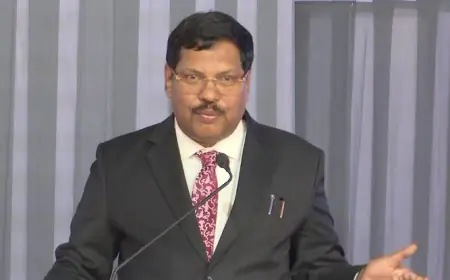India's Chief Economic Advisor lashed out at developed countries over climate change, accused of adopting double standards
Climate: Nageshwaran said that the United Nations conference on climate change emphasized on dealing with this global problem. During this, it was said that developed countries will provide resources to deal with climate change.

V Anant Nageshwaran, India's Chief Economic Advisor, has chastised industrialized countries for applying double standards to climate change. Nageshwaran referred to the G7 conference's promise here. At the G7 conference, a commitment was made to phase out the use of coal power plants arbitrarily by the early 2030s.
Nageshwaran has emphasized these things in the Annual Economic Survey. He said that it would be wrong to put pressure on developing countries to give up their aspirations to live a better life. He further said that this would pave the way for developed countries to live in a clean environment and cold climate. He argued that the economic development of developing countries would strengthen them for better climate change. Nageshwaran said that in the United Nations conference on climate change, emphasis was laid on tackling this global problem. During this, it was said that developed countries would provide resources to deal with climate change and at the same time maintain economic dynamism.
India's Chief Economic Advisor said, 'It has been seen that developing countries have taken actions in the field of climate through their domestic resources. Apart from this, the emphasis of developed countries has been mainly on financing climate change action. ' Along with this, Nageshwaran criticized the double standards of rich countries. He said that Britain has postponed the decision to ban the sale of petrol and diesel vehicles from 2030 to 2035. Apart from this, Germany also put a stop to the decision to ban fossil fuel boilers.
Nageshwaran further said that rich countries have asked developing countries to adopt carbon emission strategies. He said, 'The G7 members had insisted that coal power plants would be phased out by the early 2030s. Japan and Germany did not agree to this. Germany has decided that coal plants will be closed by the year 2038. Apart from this, Japan has not yet set any date. This can give rise to internal and international disputes.' In the last few years, developed countries along with India have put pressure on the global south to phase out coal plants. This has been especially emphasized in the annual climate conference of the United Nations. 70 percent of electricity generation in India is dependent on coal.











































































